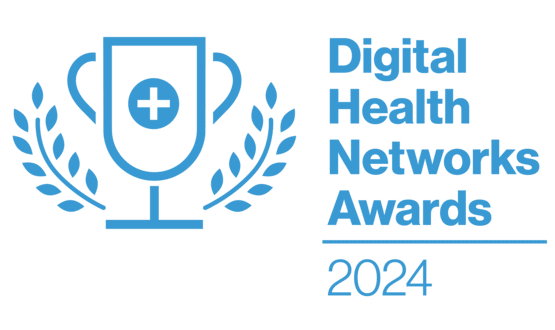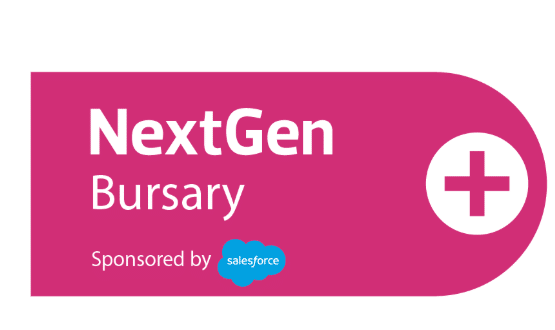CCIO profile: Dr Les Boobis
- 16 July 2013

Now here is something you don’t hear very often. When Les Boobis, the chief clinical information officer at City Hospitals Sunderland NHS Foundation Trust, decided to study medicine his parents were not pleased.
He had won a sponsored scholarship from IBM to study computing; so his last minute switch to medicine at Glasgow University in the late 1960s was going to be expensive.
As he says: “I changed my mind at the last minute and didn’t tell my parents at first. They were a bit annoyed.”
Keep up the coding
Still, his interest in computing never went away. Dr Boobis did holiday jobs programming on an IBM mainframe computer while he was a medical student. And he maintained an interest in healthcare IT through his developing career as a surgeon.
Like many other CCIOs, he spent long hours as a clinician building databases; in his case for reporting on surgeons’ and surgical departments’ outcomes and performance. This was in the early 1990s, long before the push for all surgeons to publish such data nationally.
“I initially developed this as a stand alone system,” he says of this early work. “As it progressed it became apparent that such a system was not adequate.
“We needed to use more integrated systems to produce allegedly more accurate assessments of what people were doing. But the problem with integrated systems is always data quality.”
Fending off NPfIT
Dr Boobis has been at City Hospitals Sunderland since 1988 and involved with the hospital’s Meditech Magic platform since it was first deployed in 1992. The trust went live with Meditech 6.0 on 24 May 2013.
Dr Boobis helped to develop relationships with information providers, including with CHKS; fending off the advances of the NPfIT team that kept turning up to say that Lorenzo was on its way and the trust had to get ready for it in the process.
“Every time they came to speak to us, it was clear that they could not offer anything that would help us progress towards achieving a level 7 EPR,” he says. “We were already level 5/6 and they were talking about level 4. It was a no brainer.”
In 2004, Dr Boobis was appointed medical director with the head (now director) of IM&T reporting directly to him. “I was responsible for the clinical aspects of IT systems,” he says.
“It worked well. I understood the department and they understood me. I was able to represent them at the board, which was very important. I have since maintained IT as part of my portfolio.”
He helped, for example, to develop the business case for Meditech 6.0; persuading the trust that it would effective and productive.
“We own the software,” he explains. “So there would be no capital charge for the upgrade, just maintenance. This put the costs at about 10% of what it would be if, for example, we went for Cerner. So just the financial advantages added up to an estimated saving of £30m to £35m.”
From medical director to CCIO
In December 2012, Dr Boobis stepped down as medical director and was appointed CCIO, a role that he combines with chief safety officer and Caldicott Guardian.
It is a full time job, offered on a one-year contract initially; what happens beyond that will be up to the trust chief executive.
“It was important to make this change for two reasons,” says Dr Boobis. “The Meditech go live and writing the clinical safety report needed greater priority.
“And I do think the role of medical director should be time limited. You should go either before it kills you or you kill somebody.” He is joking, of course, but adds: “Really, I was long enough in the role.”
Dr Boobis reports directly to the chief executive; the director of IM&T reports to Dr Boobis. “That might have been different had I not been the outgoing medical director,” he says. “It also might be different in future if the role is advertised.”
Meditech v6.0 is ‘go’
The proof of the value of the current set-up can be seen in May’s successful Meditech go-live. This was initially planned for the end of 2012 but was delayed by the magnitude of the data migration, which proved to be a much greater task than had been envisaged.
Dr Boobis spent the early months in the CCIO role shoring up the clinical engagement required for the new big bang deployment weekend. It involved more than 250 people including doctors, nurses and admin staff, plus 20 Meditech staff onsite.
A week after the incredibly busy go-live weekend, IM&T director Andy Hart told EHI it was going well.
Six weeks after that, Dr Boobis makes the same assessment when he is interviewed. “We have a few issues we are addressing but nothing major and no patient safety issues. It’s just fine tuning the system.”
There is just one of the 21 modules left to implement – bedside medication verification. “It’s new to us and we want to get the whole system working first before we look at that.”
Now for the future
The trust has other big plans for the future. It deployed First Databank Europe’s decision support in the Meditech pharmacy module and implemented ZynxCare evidence-based nursing care plans as part of the Meditech v6 deployment.
It is now going to deploy the Zynx evidence-based clinical software suite, moving forward with order sets for doctors. Zynx is owned by the Hearst Corporation, which also owns the Map of Medicine and First Databank.
An order set is the evidence-based bundle of tests, treatment interventions and medications recommended for any given condition and, Dr Boobis says, giving patients the right tests and treatment at the right time can significantly improve outcomes.
Zynx contains order sets for around 90% of the conditions managed at the hospital. “The premise is that you cannot remember everything about every condition so you need some help,” he explains. “It is not being forced on the clinicians – they felt it was something they wanted and would embrace. The investment will be repaid by the benefits.”
The trust is also looking at an imaging strategy that will enable clinicians to view any image – not just x-rays – from the picture archiving and communications system. Eventually, they should be able to see ECGs, photographs or cardiotocographs (CTGs), for example, in Meditech’s image viewer.
The trust is also looking at a vendor neutral archive to achieve this, but no decision has been made yet.
Thinking about the next generation
Dr Boobis is also grappling with mobile computing. Clinicians will only engage fully with technology once they can access it anywhere they want to, but with that come issues around security and information governance.
He is unconvinced by ‘bring your own device’, arguing out that with upwards of five mobile operating systems now in existence the maintenance burden on IT departments will be too high. Nor is he convinced that clinicians can work entirely without a keyboard.
“I think there is a lot to be said for BYOD as view only,” he says. “But in terms of having full functionality it is more difficult to see how that would work.”
He likes the look of the Microsoft Surface Pro, with its keyboard and touch screen combination, saying it has the potential to do away with consultants’ desktop altogether.
Dr Boobis, who qualified in 1973, is also looking to the next generation for up and coming CCIOs. He regards the CCIO Leaders Network hosted by EHI following its successful EHI CCIO Campaign as an important development.
And he wants it to take its place alongside work by UKCHIP and the BCS in offering accreditation and education for the clinical informaticians.
“We do have some people, in particular one anaesthetist, who is very IT savvy who would fit very well in this role,” he says. “I would advise people coming into this role to get some accreditation and get up to speed.”




